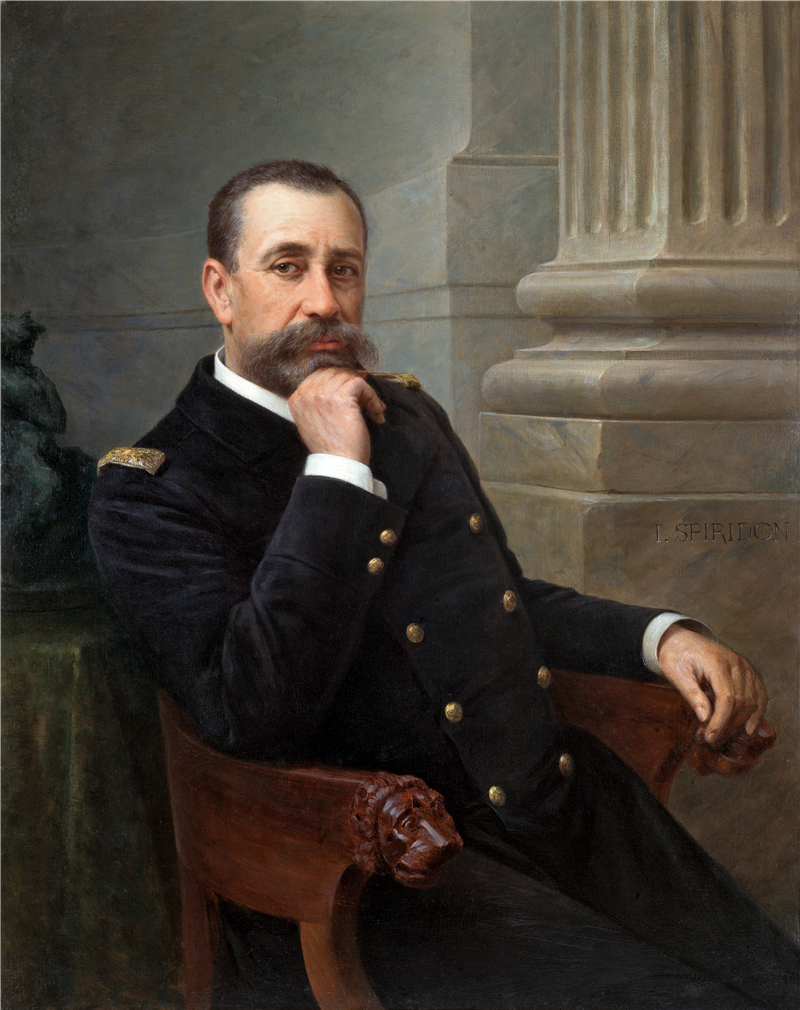by Scott Mehl
© Unofficial Royalty 2015

Alice Heine, Princess of Monaco; Credit – Wikipedia
Alice Heine, Princess of Monaco, was the second wife of Prince Albert I of Monaco, and the first American woman ever to marry a reigning European sovereign.
She was born Mary Alice Heine on February 10, 1858, in New Orleans, Louisiana, to Michel Heine and Amélie Marie Céleste Miltenberger, and had two younger brothers. Her father, a French banker and businessman, came from a prominent German Jewish banking family and was a cousin of German poet Heinrich Heine. Michel and his brother had established themselves as bankers in the United States.
In 1874, the family returned to France following the American Civil War and quickly established themselves amongst Parisian society. The following year, Alice married Marie Odet Richard Armand de La Chapelle de Saint-Jean de Jumilhac, 7th Duke of Richelieu. Jewish by birth, Alice had converted to Roman Catholicism before the marriage. The couple went on to have two children:
- Marie Odet Jean Armand de La Chapelle de Saint-Jean de Jumilhac, 8th Duke of Richelieu (1875-1952)
- Odile Chapelle de Jumilhac, later Princess of La Rochefoucauld by marriage (1879-1974)
In June 1880, the Duke of Richelieu died while on a trip to Athens, Greece. Widowed at just 22 years old, Alice became a very wealthy woman and soon established herself as one of the leading hostesses in European society. Several years later, while on the island of Madeira in Portugal, Alice met the future Prince Albert I of Monaco. From all accounts, the couple was immediately drawn to each other. Both had been married before and had children, and their personalities complemented each other. However, Albert’s father, Prince Charles III, did not approve of the match, and would not permit them to marry.
After four years, Prince Charles III died and Albert ascended to the Monegasque throne. Just seven weeks later, Alice and Albert married on October 30, 1889. Alice brought an extensive collection of jewels and a massive dowry of six million dollars.

Albert II, Prince of Monaco; Credit – Wikipedia
Hugely welcomed by the people of Monaco, Alice quickly became instrumental in the principality’s development. Her advanced business sense and large dowry helped restore the nation’s financial stability. Alice then set out to turn Monaco into more than just a small principality dominated by its casino. An avid supporter of the arts, Alice brought the theater, opera, and ballet to Monaco, and is often credited with turning Monaco into one of the cultural hotspots in Europe.
While her husband supported her efforts in the arts, Alice never fully supported or understood Albert’s love of the sea and oceanography. Their mutual lack of support drove the couple apart, and Alice had an affair with the composer Isidore de Lara. Despite his own affairs, Prince Albert was devastated by his wife’s infidelity, but the couple continued to put on the facade of a happy marriage. However, it came crashing down in 1901. On the opening night of the opera, Prince Albert publicly accused Alice of her affair with the composer, in front of the entire opera hall, going as far as slapping her across the face. Humiliated, Alice left the opera immediately and left Monaco the next morning. Her husband quickly banned her from ever returning to Monaco, and made every effort to strip her from Monaco’s history. The couple was granted a legal separation in 1902 but never divorced.
Alice settled at Claridge’s in London, England where she established herself in the upper echelons of British society, entertaining extensively and continuing to patronize the arts. While in London, she became a close friend of Queen Alexandra, wife of King Edward VII of the United Kingdom.
Several years after her estranged husband’s death, Alice, now the Dowager Princess of Monaco, died in Paris, France on December 22, 1925, at the age of 67. She is buried at the Père Lachaise Cemetery in Paris, France.
This article is the intellectual property of Unofficial Royalty and is NOT TO BE COPIED, EDITED, OR POSTED IN ANY FORM ON ANOTHER WEBSITE under any circumstances. It is permissible to use a link that directs to Unofficial Royalty.


